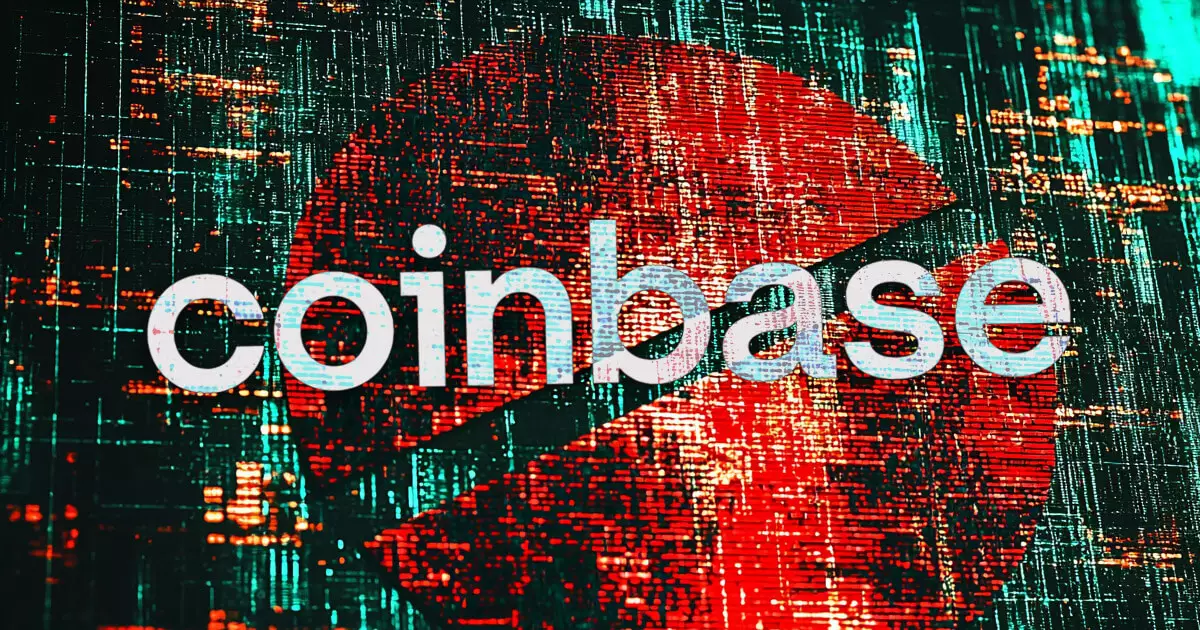The ongoing tussle between privacy and security in the cryptocurrency ecosystem has recently intensified due to Coinbase’s decision to limit user access through Virtual Private Networks (VPNs). As the largest cryptocurrency exchange based in the United States, Coinbase’s choice has sparked uproar within the crypto community, revealing a significant divide between user privacy rights and perceived security threats. This article delves into the implications of Coinbase’s actions, the reasoning behind them, and the broader conversation surrounding user rights in a digital age increasingly characterized by surveillance.
Scott Shapiro, a product designer at Coinbase, raised eyebrows when he cautioned users against utilizing VPNs to access their accounts. His remarks highlighted the company’s belief that VPNs signal potential malicious activity. While stating that “attackers always use VPNs,” Shapiro’s assertion neatly crystallizes the dilemma faced by the exchange: security protocols can often unintentionally alienate legitimate users. The risk assessment model implemented by Coinbase seems to classify VPN usage as a potential threat, which, while sectioned under the auspices of protecting user assets, raises ethical questions regarding user privacy.
Coinbase emphasizes the importance of safeguarding users from fraudulent attacks. Still, one must question the fairness of applying blanket policies that disproportionately impact legitimate users who seek to protect their online activity from prying eyes. The surge in the usage of VPNs—with a staggering 46% of Americans reportedly utilizing such services—demonstrates a growing public desire for privacy. For many, VPNs have become synonymous with safe online navigation, enhancing their appeal as tools to obscure personal information and maintain anonymity in the digital sphere.
Criticism of Coinbase’s stance has erupted within the cryptocurrency community. Many enthusiasts argue that banning the use of VPNs infringes upon fundamental rights to privacy—an essential tenet in the world of decentralized finance. The comparison drawn by users between Coinbase’s actions and broader governmental efforts to control individual financial freedom signifies a growing wariness about corporate influence over personal liberties. Kraken’s Chief Security Officer, Nick Percoco, encapsulated this sentiment perfectly by framing Coinbase’s restrictions as a perilous choice between financial autonomy and user safety.
Moreover, security expert Sudo voiced concerns regarding the misguided nature of Coinbase’s policies. The essence of utilizing a VPN lies in its protective capacity, particularly for those operating in regions where access to cryptocurrency exchanges can be perilous. By discouraging VPN use, Coinbase risks compelling users to expose their sensitive financial activities to local Internet Service Providers (ISPs) and government scrutiny—an intolerable scenario for many crypto enthusiasts who prioritize both privacy and security.
Adding a layer of complexity to this debate is the defense mounted by crypto advocate Evan Van Ness, who views Coinbase’s policy as standard anti-fraud tactics in an industry rife with cybercriminal activity. He suggests that while fraudsters may indeed employ VPNs to shield their identities, legitimate users should be prepared to disable their protective features for specific transactions when utilizing the platform. This standpoint raises significant questions: Is the fight against fraud justifying the possible neglect of user rights?
While Van Ness raises valid points regarding the nature of fraud, it becomes crucial to engage with the broader implications of such measures. Trading off user privacy for perceived security can lead to a slippery slope where companies justify continual encroachments upon individual rights in the name of safety.
In navigating the complex landscape of cryptocurrency exchanges, we must consider the compelling need for a balance between security and user autonomy. Companies like Coinbase bear a considerable responsibility in establishing policies that not only safeguard their systems but also respect and uphold the privacy rights of their users. As the conversations evolve, it is imperative for exchanges to engage with their communities, seeking feedback rather than imposing policies that may inadvertently alienate users.
The tension between protecting users and enabling the freedom synonymous with cryptocurrency is palpable. The discussion about VPNs, privacy, and security must continue, driven by respect for personal liberties and the need for robust fraud prevention. Ultimately, the resolution of this issue will shape the future of trust and security in the digital economy, offering a pivotal moment for cryptocurrency exchanges to redefine their roles in users’ lives.

